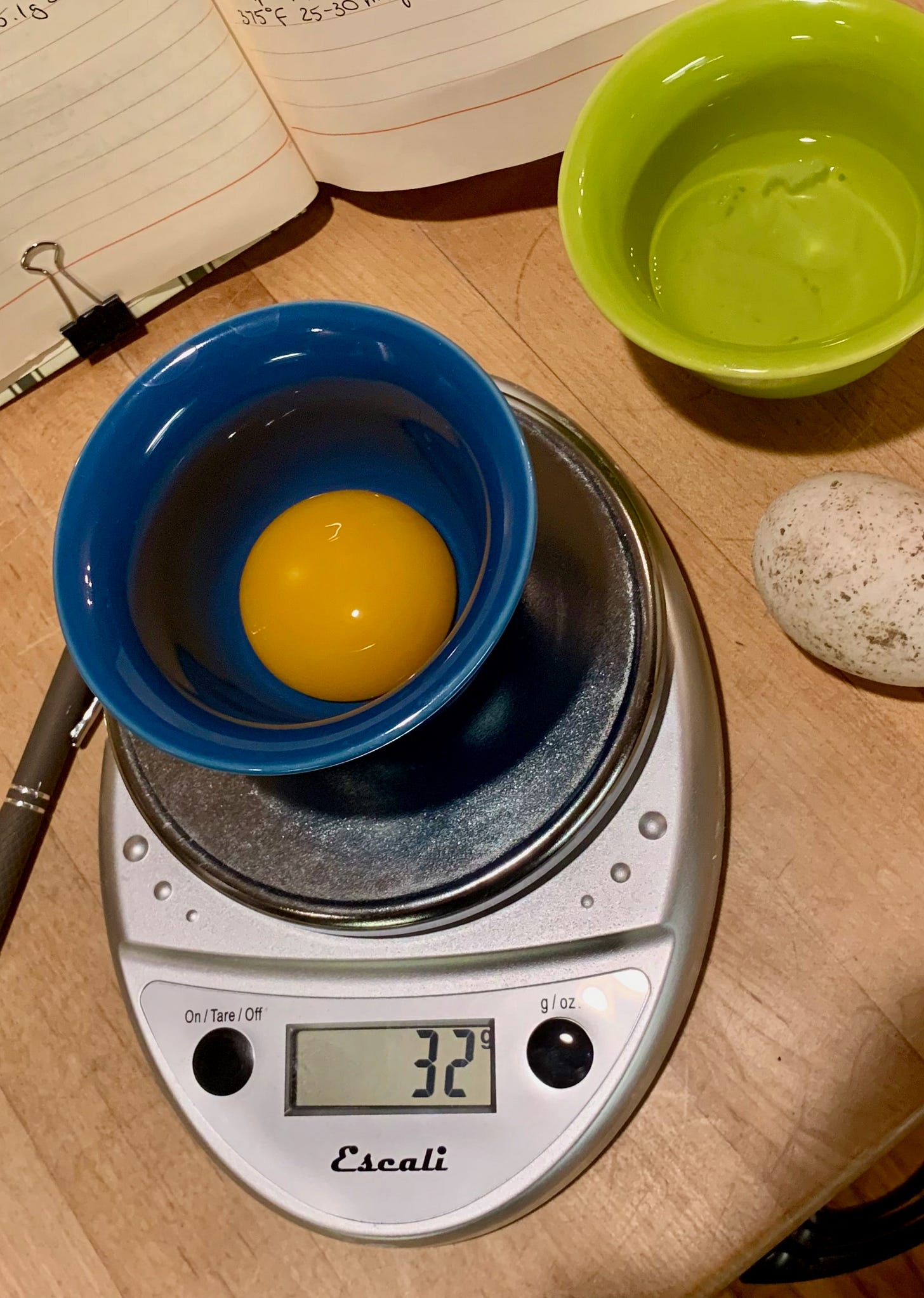“You have to count them every night.”
“How many are there supposed to be?”
“14. 9-4-1.”
“9-4-1?”
“9 of one kind, 4 of a different kind…”
“Got it! 14 ducks. Ok, I can do this.”
I had offered, cajoled and convinced a friend that I could house sit for him while he was away and take care of his animals. This included 14 ducks, two cats and a dog. Cats and dogs I’ve had before, but ducks were a new experience for me. I didn’t know anything about ducks. Well that’s not entirely true.
I knew that duck eggs were bigger than chicken eggs. And these ducks were still laying thanks to a heat lamp that kept them warm at night. That meant that not only was I responsible for the well being of the ducks, I was also responsible for dealing with the eggs. Anywhere from 4 to 8 eggs. That’s what I was collecting from their soft pile of wood shavings every morning.
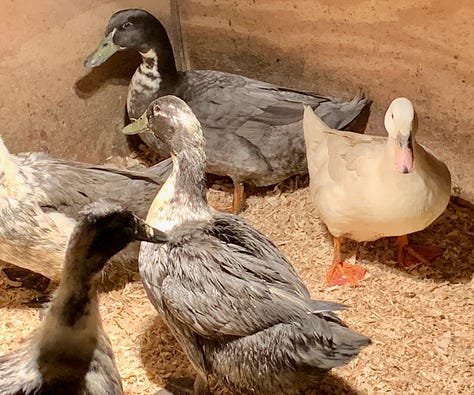
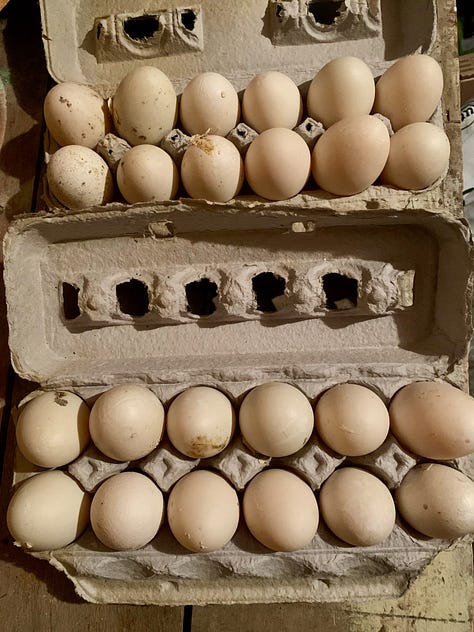
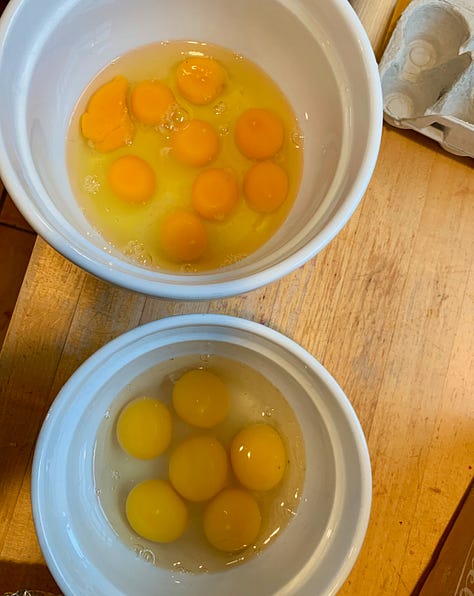
This was exciting! I had lots of duck eggs. The problem was that I don’t actually like eggs all that much. They’re more of a “sometimes” food and usually scrambled with lots of cheese. The dog liked them. In fact, part of her routine was to have a cooked duck egg every night after dinner. This was clearly a favorite part of her evening and she let me know if I was taking too long to get it to her.
But this still left me with a backlog of a couple dozen, with more being added every day. Fortunately I found a couple friends willing to help me out. While I offloaded what had already been collected, I still needed to make plans for what was coming. I decided I should bake with them.
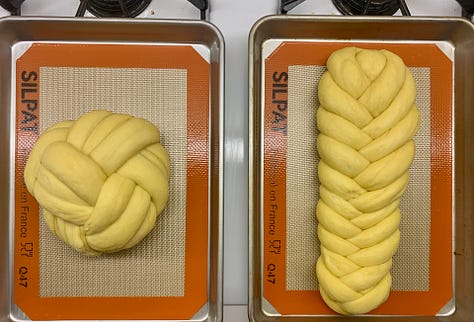
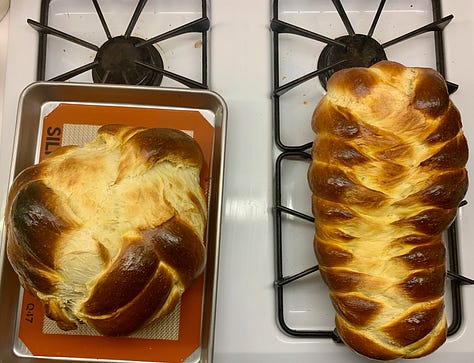
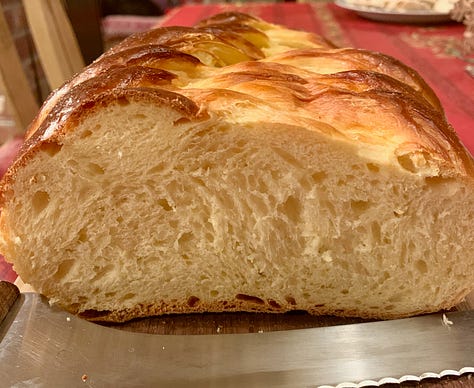
The first thing that came to mind was that I should bake challah. A full size, two loaf recipe takes four yolks and two whole eggs. This was great. A whole morning’s egg harvest used up in one bake. These were some of the most beautiful loaves of challah I’d made. They were a more vibrant, rich yellow than previous loaves because of the larger, extra yolk that the generous ducks provided.
But now that I’d gone full size, I wanted to see if I could use the large duck eggs and reduce challah to a small batch. Something that I was aware of was the proportion of liquid to flour in the bread recipe. While you can scale down a recipe the proportions need to remain the same. This is how my small batch baking works. But I’d read that people were swapping chicken eggs out of bread recipes for duck eggs without altering the proportions. A large chicken egg weighs about 50g and a large duck egg weighs about 75g. That can make a big difference.
But I did it with my full size challah bake and decided it’s just a matter of math to make it smaller. So when I reduced the recipe for a single loaf of challah to 30% of its full size, I reduced the weight of the duck eggs to 30% as well.
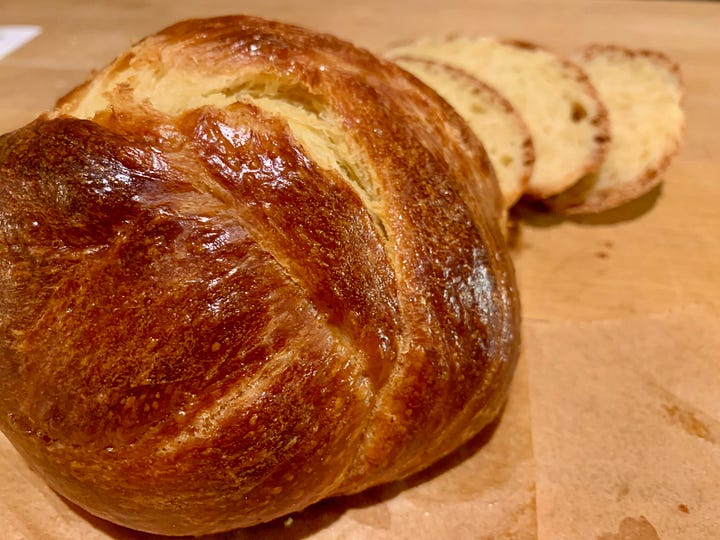
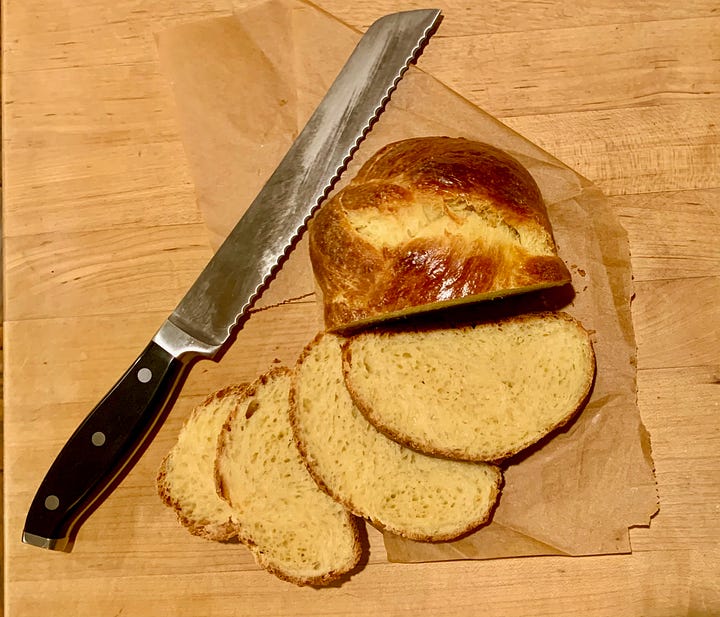
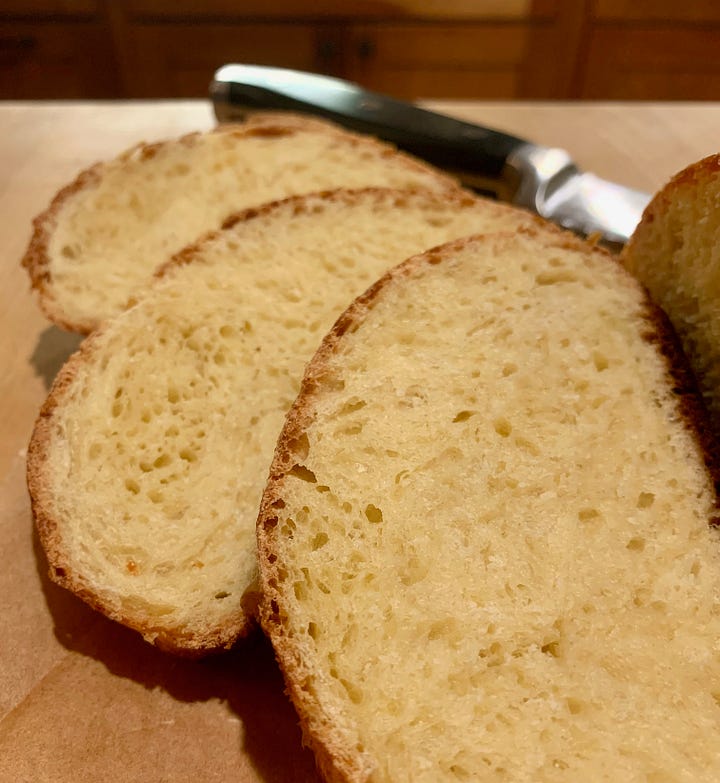
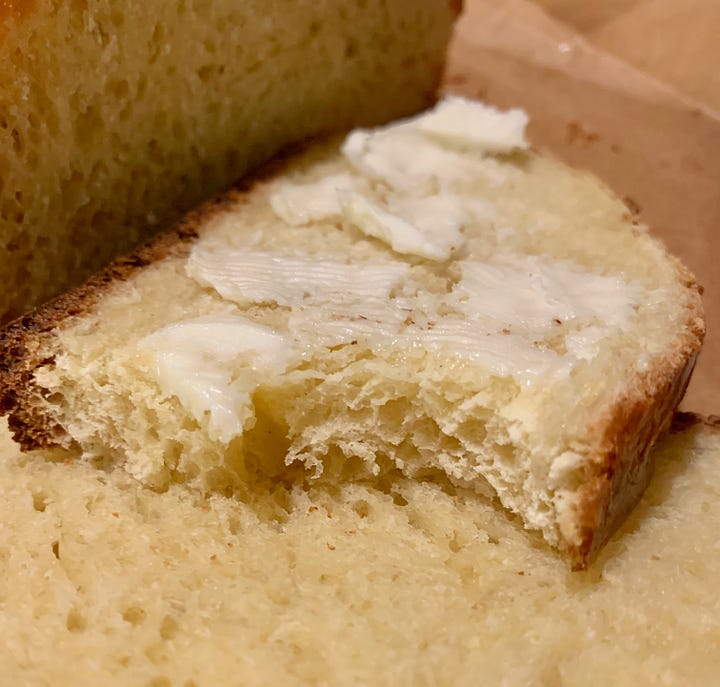
It worked. I ended up with a beautifully shiny (thanks to a duck egg wash) small loaf of challah, with a soft crumb and full yellow interior.
Here is the recipe, the original of which is Classic Challah from King Arthur Baking, and here is how I made it happen.
ingredients
150g all-purpose flour
51g lukewarm water
22g vegetable oil
19g honey
45g duck egg (30g chicken egg)
10g duck egg yolk (4g chicken egg yolk)
2.7g salt
3.6g yeast
directions
Mix all the ingredients together in a bowl and knead until you have a smooth elastic dough.
Cover and let rise until puffy. The fire hadn’t really gotten going yet, so this took my little ball of dough a couple hours.
Divide into your desired portions and braid them into your loaf. A few things here…first, refrigerating the doubt for 30 minutes or so makes it a lot easier to handle when you’re rolling out your lengths for the braid. Also, how do you know how many strands to divide it into? Well, that depends on the kind of braid you want. Google it. Braiding challah. There are lots of options and directions out there. I divided mine into 6 portions and made something called the Winston Knot. This is my favorite challah shape.



Cover with greased plastic wrap and let your braided dough rise until puffy. About 60-90 minutes.
During this time, preheat your oven to 3750F
When ready to bake, brush the top of the dough with what’s left of your beaten duck egg. The leftover makes a perfect egg wash.
Bake for 25-30 minutes until a shiny golden brown
By the time I was done, I still had a whole duck egg white and part of a duck egg yolk. Let’s just say the dog got more than one egg after dinner that night. Shhh! Don’t tell her dad.
Afterword
After publishing this post, I was directed to a book that the dog’s dad kept on a side table in the livingroom. It was all about ducks. I have since learned that duck eggs are good for baking because the have a higher fat and protein content and lower water content than chicken eggs do. This brings more loft to baked goods. Who knew? Sounds like I’ll have to try baking with duck eggs more often.



